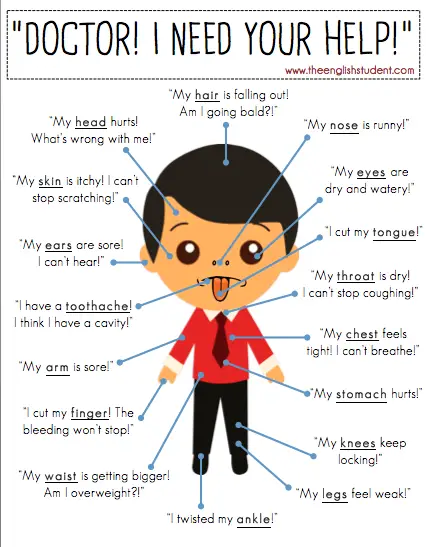miércoles, 26 de abril de 2017
Sentence transformation exercises: PET
Exercise 1
Exercise 2
Exercise 3
Exercise 4
More exercises!
Exercise 5 (flashcards)
Exercise 6 (active/passive)
Exercise 7 (with explanations!)
Flo-Joe:
Exercise 8
Exercise 9
Exercise 10
More!
Exercise 11 (with key word)
miércoles, 19 de abril de 2017
Describing a photo
In Part 3 (PET Speaking) you will be asked to talk about a photograph. Here are some hints to help you.
Modals of deduction
We can use modal verbs to talk about possibilities (things that might be/ could be true.)
lunes, 17 de abril de 2017
domingo, 16 de abril de 2017
miércoles, 12 de abril de 2017
martes, 11 de abril de 2017
KET exam information and practice
Here is a blog that has information and practice exercises for the KET exam.
Ready for KET
This Reading and Writing part has exercises to help you (click on each picture for a different one.)
There are exercises and tips for each part (look at the menu on the left sidebar.)
Ready for KET
This Reading and Writing part has exercises to help you (click on each picture for a different one.)
There are exercises and tips for each part (look at the menu on the left sidebar.)
miércoles, 5 de abril de 2017
KET Speaking
There are 2 parts to the KET/A2 speaking Exam.
Practice Tests PET/KET
Here are some links to practice tests and exercises.
A2/KET:
Test 1
Test 2
B1/PET:
Test 1
Test 2
Flo-Jo Resources, exercises and test information:
KET
PET
Exam English Resources and practice tests:
KET Reading and Writing
KET Listening
PET Reading and Writing
PET Listening
Cambridge Exams Website:
KET information, downloadable tests
PET information, downloadable tests
A2/KET:
Test 1
Test 2
B1/PET:
Test 1
Test 2
Flo-Jo Resources, exercises and test information:
KET
PET
Exam English Resources and practice tests:
KET Reading and Writing
KET Listening
PET Reading and Writing
PET Listening
Cambridge Exams Website:
KET information, downloadable tests
PET information, downloadable tests
domingo, 2 de abril de 2017
Reported speech
When we report what someone says, we have to change the verb into the past. We also have to change the pronouns.
"I don't like spinach," said Mary. Mary said that she didn't like spinach.
"I can't go to the park because it's raining," said Dan.
Dan said that he couldn't go to the park because it was raining.
We also change words about place and time.

"I'm leaving for France tomorrow," said Nancy.
Nancy told me that she was leaving for France the following day.
"What time will you get here?" she asked. She asked what time we would get there.
"I don't like spinach," said Mary. Mary said that she didn't like spinach.
"I can't go to the park because it's raining," said Dan.
Dan said that he couldn't go to the park because it was raining.
We also change words about place and time.

"I'm leaving for France tomorrow," said Nancy.
Nancy told me that she was leaving for France the following day.
"What time will you get here?" she asked. She asked what time we would get there.
Reported Speech from Miguel Dias
We can also report commands.
"Be quiet, please," said the teacher. The teacher asked the children to be quiet.
"Sit down!" said the bus driver. The bus driver told him to sit down.
If we report a question we can use "if" or "whether."
"Are you coming?" she asked. She asked if we were coming.
"Do you know Bill?" he asked. He asked me whether I knew Bill.
Practice changing the pronouns
Change the verb tense
Reported commands
Reported commands 2
Reported questions
We can also report commands.
"Be quiet, please," said the teacher. The teacher asked the children to be quiet.
"Sit down!" said the bus driver. The bus driver told him to sit down.
If we report a question we can use "if" or "whether."
"Are you coming?" she asked. She asked if we were coming.
"Do you know Bill?" he asked. He asked me whether I knew Bill.
Practice changing the pronouns
Change the verb tense
Reported commands
Reported commands 2
Reported questions
Suscribirse a:
Comentarios (Atom)


